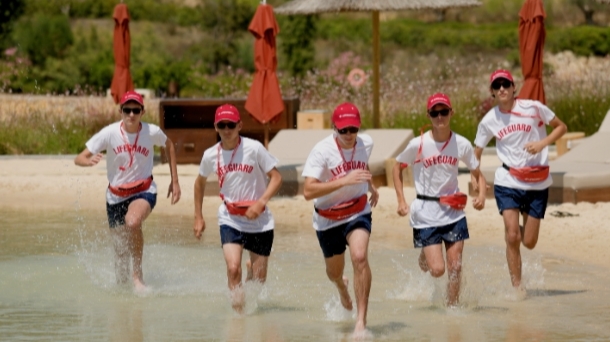Learning to be a lifeguard can be both illuminating and engaging. It’s not just about significant drills and protocols; there’s a tomfoolery side to lifeguard classes that frequently shocks members. We should dive further into the different elements that make lifeguard training a pleasant encounter.
Interactive Simulations
One of the pleasant parts of lifeguard training is the utilization of interactive simulations. These situations copy genuine emergencies, permitting members to apply their skills in a controlled at this point sensible environment.
For instance, members might practice safeguarding a distressed swimmer or doing mouth-to-mouth on a simulated casualty. These simulations improve skills as well as make learning connecting with and memorable.
Team Bonding
Lifeguard classes allow team bonding. Working together on different exercises cultivates fellowship among members, making the learning experience more agreeable and memorable. Through teamwork, members figure out how to trust and depend on one another, essential characteristics for compelling lifeguarding.
Water Games
Some lifeguard programs integrate water games into their educational plan. These games break the monotony of traditional drills as well as assist with working on members’ swimming abilities and water confidence. Games like water polo or transfer races make learning fun as well as advance physical fitness and aquatic skills.
Practical Difficulties
The classes frequently incorporate practical difficulties that test members’ skills under tension. For example, members might be entrusted with saving numerous casualties in a simulated emergency or responding to different situations at the same time. While these difficulties are meant to be serious, they can likewise be fun as members drive themselves to succeed and overcome obstructions.
Role-Playing Situations
Role-playing situations are one more part of lifeguard training that adds a great element. Members take on various roles, like distressed swimmers or observers, permitting them to figure out different viewpoints in emergencies. This immersive experience assists members with creating sympathy and quick decision-production skills.
Skill Competitions
Some lifeguard classes sort out skill competitions where members contend in timed drills or rescue simulations. These cordial competitions upgrade skills as well as infuse a feeling of excitement and motivation into the learning system. Contending with peers in a steady environment urges members to take a stab at greatness.
First Aid Games
Integrating first aid games into lifeguard classes is both educational and charming. Members learn essential first-aid techniques through interactive games, for example, swathing races or medical role-plays. These games build up learning as well as make the training sessions dynamic and locking in.
Outside Training
Numerous lifeguard classes incorporate outside training sessions, like beach or poolside drills. The outside environment adds a reviving turn to the training and permits members to apply their skills in various settings. Outside training additionally opens members to genuine conditions, setting them up for challenges they might experience on the job.
Educational Workshops
Besides practical training, the classes frequently highlight educational workshops on themes like water safety, CPR, and emergency response. These workshops are useful yet introduced in a connecting way, consolidating interactive presentations, recordings, and gathering discussions. Members learn important information as well as have a great time at the same time.
Simulated Rescues
Simulated rescues are a feature of the training. Members get to practice different rescue techniques in simulated emergencies, for example, swift water rescues or spinal injury management. These simulations give hands-on experience and assemble confidence in members’ abilities to deal with genuine emergencies.
Situation-Based Learning
Situation-based learning is a viable and pleasant method utilized in lifeguard classes. By introducing practical situations, members figure out how to think basically and pursue quick choices, all while having some good times. Situation-based learning supports active participation and critical thinking skills, essential credits for successful lifeguards.
Water Safety Demonstrations
The training classes might incorporate water safety demonstrations, displaying legitimate techniques and equipment use. These demonstrations are enlightening as well as engaging for members. Watching demonstrations of rescue equipment like rescue tubes or backboards in real life adds excitement to the training and supports safety protocols.
Peer Support
During lifeguard courses, members frequently get peer supporting and encouragement. This positive air contributes to a tomfoolery and compensating learning experience. Members gain from one another’s encounters, share tips and procedures, and celebrate achievements together, creating a feeling of community inside the lifeguarding profession.
Concluding Remarks
In conclusion, lifeguard training envelops something beyond serious drills and certifications. The tomfoolery side of lifeguard classes, including interactive simulations, water games, role-playing situations, and skill competitions, adds excitement and enjoyment to the learning system.
By embracing this pleasant viewpoint, members can upgrade their skills while building kinship and confidence. Assuming you’re searching for lifeguard classes near me that offer a drawing-in and agreeable learning experience, consider investigating options through the American Lifeguard Association. Their far-reaching programs consolidate practical training with interactive elements to ensure members gain important skills while living it up.


